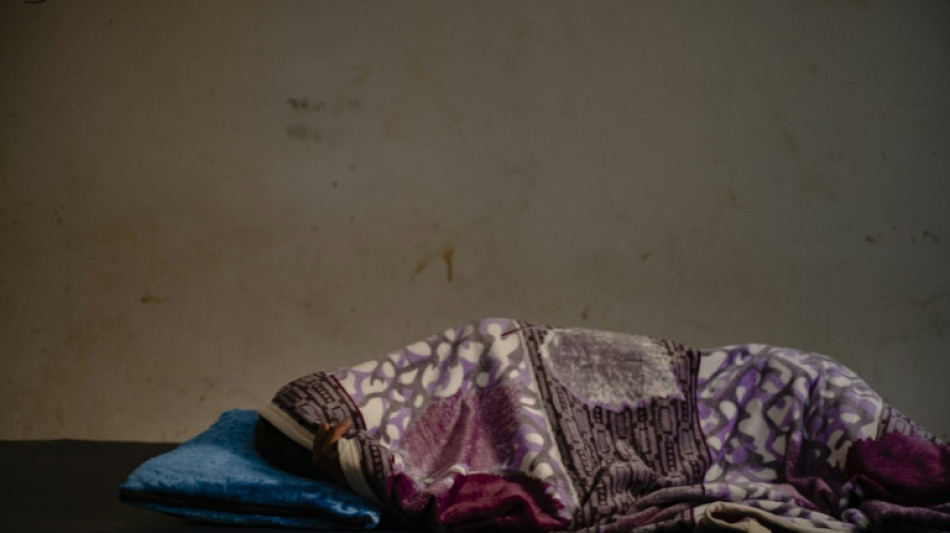
-
 Villa face Chelsea test as Premier League title race heats up
Villa face Chelsea test as Premier League title race heats up
-
Spurs extend domination of NBA-best Thunder

-
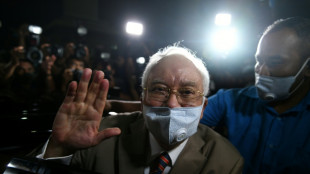 Malaysia's Najib to face verdict in mega 1MDB graft trial
Malaysia's Najib to face verdict in mega 1MDB graft trial
-
King Charles calls for 'reconciliation' in Christmas speech

-
 Brazil's jailed ex-president Bolsonaro undergoes 'successful' surgery
Brazil's jailed ex-president Bolsonaro undergoes 'successful' surgery
-
UK tech campaigner sues Trump administration over US sanctions

-
 New Anglican leader says immigration debate dividing UK
New Anglican leader says immigration debate dividing UK
-
Russia says made 'proposal' to France over jailed researcher
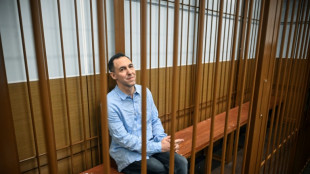
-
 Bangladesh PM hopeful Rahman returns from exile ahead of polls
Bangladesh PM hopeful Rahman returns from exile ahead of polls
-
Police suspect suicide bomber behind Nigeria's deadly mosque blast

-
 AFCON organisers allowing fans in for free to fill empty stands: source
AFCON organisers allowing fans in for free to fill empty stands: source
-
Mali coach Saintfiet hits out at European clubs, FIFA over AFCON changes
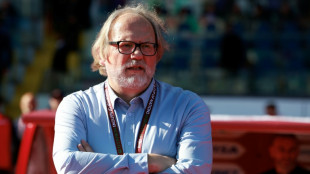
-
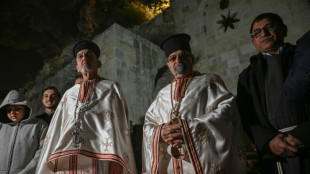 Last Christians gather in ruins of Turkey's quake-hit Antakya
Last Christians gather in ruins of Turkey's quake-hit Antakya
-
Pope Leo condemns 'open wounds' of war in first Christmas homily

-
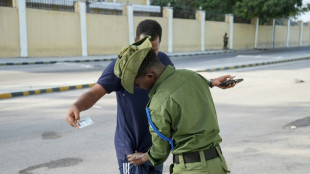 Mogadishu votes in first local elections in decades under tight security
Mogadishu votes in first local elections in decades under tight security
-
'Starting anew': Indonesians in disaster-struck Sumatra hold Christmas mass
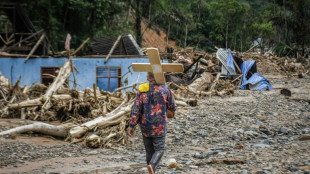
-
 Cambodian PM's wife attends funerals of soldiers killed in Thai border clashes
Cambodian PM's wife attends funerals of soldiers killed in Thai border clashes
-
Prime minister hopeful Tarique Rahman arrives in Bangladesh: party
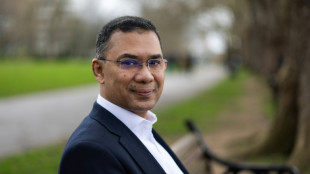
-
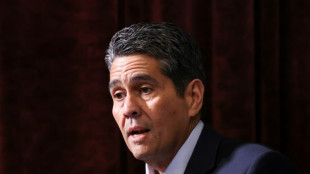 Pacific archipelago Palau agrees to take migrants from US
Pacific archipelago Palau agrees to take migrants from US
-
Pope Leo expected to call for peace during first Christmas blessing
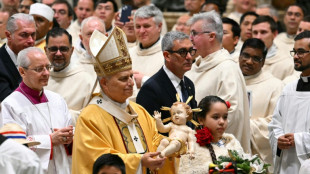
-
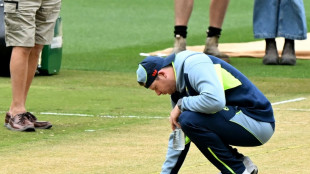 Australia opts for all-pace attack in fourth Ashes Test
Australia opts for all-pace attack in fourth Ashes Test
-
'We hold onto one another and keep fighting,' says wife of jailed Istanbul mayor

-
 North Korea's Kim visits nuclear subs as Putin hails 'invincible' bond
North Korea's Kim visits nuclear subs as Putin hails 'invincible' bond
-
Trump takes Christmas Eve shot at 'radical left scum'

-
 3 Factors That Affect the Cost of Dentures in San Antonio, TX
3 Factors That Affect the Cost of Dentures in San Antonio, TX
-
Leo XIV celebrates first Christmas as pope

-
 Diallo and Mahrez strike at AFCON as Ivory Coast, Algeria win
Diallo and Mahrez strike at AFCON as Ivory Coast, Algeria win
-
'At your service!' Nasry Asfura becomes Honduran president-elect
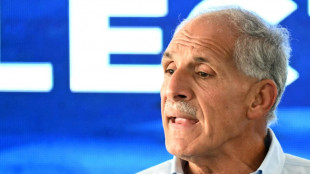
-
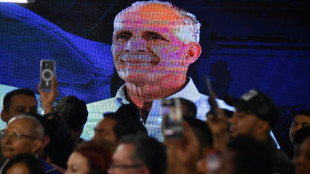 Trump-backed Nasry Asfura declared winner of Honduras presidency
Trump-backed Nasry Asfura declared winner of Honduras presidency
-
Diallo strikes to give AFCON holders Ivory Coast winning start
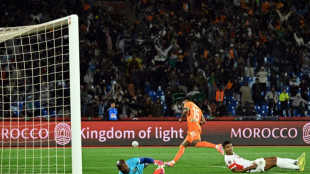
-
 Spurs captain Romero facing increased ban after Liverpool red card
Spurs captain Romero facing increased ban after Liverpool red card
-
Bolivian miners protest elimination of fuel subsidies
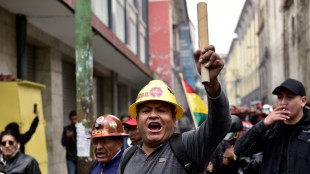
-
 A lack of respect? African football bows to pressure with AFCON change
A lack of respect? African football bows to pressure with AFCON change
-
Trump says comedian Colbert should be 'put to sleep'

-
 Mahrez leads Algeria to AFCON cruise against Sudan
Mahrez leads Algeria to AFCON cruise against Sudan
-
Southern California braces for devastating Christmas storm
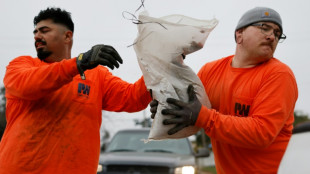
-
 Amorim wants Man Utd players to cover 'irreplaceable' Fernandes
Amorim wants Man Utd players to cover 'irreplaceable' Fernandes
-
First Bond game in a decade hit by two-month delay

-
 Brazil's imprisoned Bolsonaro hospitalized ahead of surgery
Brazil's imprisoned Bolsonaro hospitalized ahead of surgery
-
Serbia court drops case against ex-minister over train station disaster
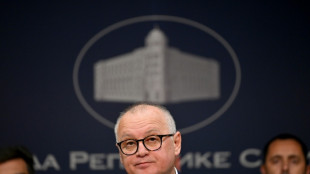
-
 Investors watching for Santa rally in thin pre-Christmas trade
Investors watching for Santa rally in thin pre-Christmas trade
-
David Sacks: Trump's AI power broker
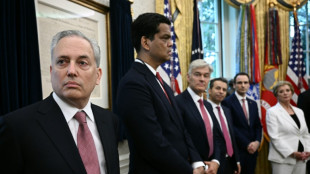
-
 Delap and Estevao in line for Chelsea return against Aston Villa
Delap and Estevao in line for Chelsea return against Aston Villa
-
Why metal prices are soaring to record highs

-
 Stocks tepid in thin pre-Christmas trade
Stocks tepid in thin pre-Christmas trade
-
UN experts slam US blockade on Venezuela

-
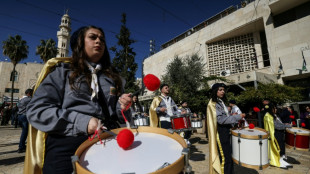 Bethlehem celebrates first festive Christmas since Gaza war
Bethlehem celebrates first festive Christmas since Gaza war
-
Set-piece weakness costing Liverpool dear, says Slot

-
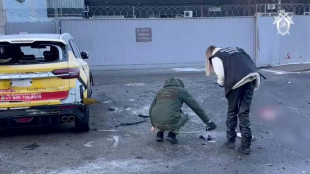 Two police killed in explosion in Moscow
Two police killed in explosion in Moscow
-
EU 'strongly condemns' US sanctions against five Europeans


Patients brave mental health desert in Mauritania
The wall was tagged with graffiti above 22-year-old Sidi's bed in the lone psychiatric hospital in Mauritania, a country whose mental health system is as sparse as its desert landscapes.
"Stress kills your neurons," said the message scrawled in room 13, one of just 20 beds available for psychiatric patients in the African country of five million people, which sits between the Atlantic and the Sahara.
Sidi's father, Mohamed Lemine, traced his son's mental health troubles to a frustrated attempt to emigrate to the United States.
"His friends got him into these problems. They put the idea in his head of leaving the country, but the bank turned down his loan application," Lemine said.
"After that, he became sad and started taking drugs."
At a loss on how to handle Sidi's increasingly violent psychotic episodes, Lemine finally brought him three days previously to the Nouakchott Centre for Specialised Medicine, home to the country's only psychiatric ward, where he was admitted with a diagnosis of psychosis.
Lemine, a retired army officer with a neatly trimmed white beard, had installed a mat in his son's room to keep watch over him.
Like most patients, Sidi was expected to remain in the centre only a few days. Beds and staff are too scarce for longer stays.
"We need to increase the number of beds. Lots of patients travel long distances to come here, and there's no other psychiatric care infrastructure," said one of the centre's doctors, Mohamed Lemine Abeidi.
- Family affair -
The centre's 20 rooms line a wide, turquoise-and-cream-coloured corridor that is filled with constant bustle: women bringing their children meals; a man visiting his brother; a worried uncle trying to calm his paranoiac nephew.
Non-violent patients are also allowed to stroll the hall, accompanied by relatives.
They greet the head nurse, joke with the security chief, and talk to anyone who will listen about their concerns of the day, from politics and erectile problems to Satanic visions.
"Almost all the patients are accompanied by their families," said Abeidi, calling it a "cultural specificity" of Mauritania.
Outside the door to the ward, dozens of people were gathered, making tea as they waited.
Like all Mauritania's mental health professionals, Abeidi, a psychiatrist, studied abroad, given the lack of training programmes in the country.
"We're still quite limited, but there's been an improvement" in psychiatric care since the 1970s, he said with a smile, leaving his office after yet another day packed with appointments.
The 1970s is the decade when doctor Dia Al Housseynou first brought mental health care to Mauritania, an arid, predominantly Muslim country deeply attached to the Sahara, both geographically and culturally.
- Doctors in tents -
Now 83, Housseynou lives in a bougainvillea-covered house in the centre of the capital, Nouakchott.
As a young man, he studied abroad in Senegal, completed internships in several European countries and wrote his thesis on family therapy before returning to Mauritania in 1975 and convincing authorities of the importance of mental health care.
He set up the traditional desert tents known as "khaimas" in the courtyard of the national hospital, where families could bring their loved ones for doctor's appointments.
Three years later, the hospital opened a dedicated psychiatric service. The Centre for Specialised Medicine was inaugurated in 1990.
But Housseynou said he was nostalgic for the days of tents.
"Architecture is key in caring for the ill. When we build closed wards, everyone in their own room, it becomes a prison," he said, adding that Mauritania did not need "Western-style psychiatry".
Inside the psychiatric ward, many patients deemed violent are chained to their beds.
"It's not hospital policy, but it's up to families whether to restrain their loved one or not," said chief security officer Ramadan Mohamed.
Sidi had a chain attached to his left foot.
Hospitalisation is often the last resort for families, Abeidi said.
"Most patients undergo traditional treatments before turning to psychiatry," he said.
"The patient sees a 'marabout' (traditional religious figure), and if the family and the marabout see that's not working, they refer them to the hospital."
P.Martin--AMWN

